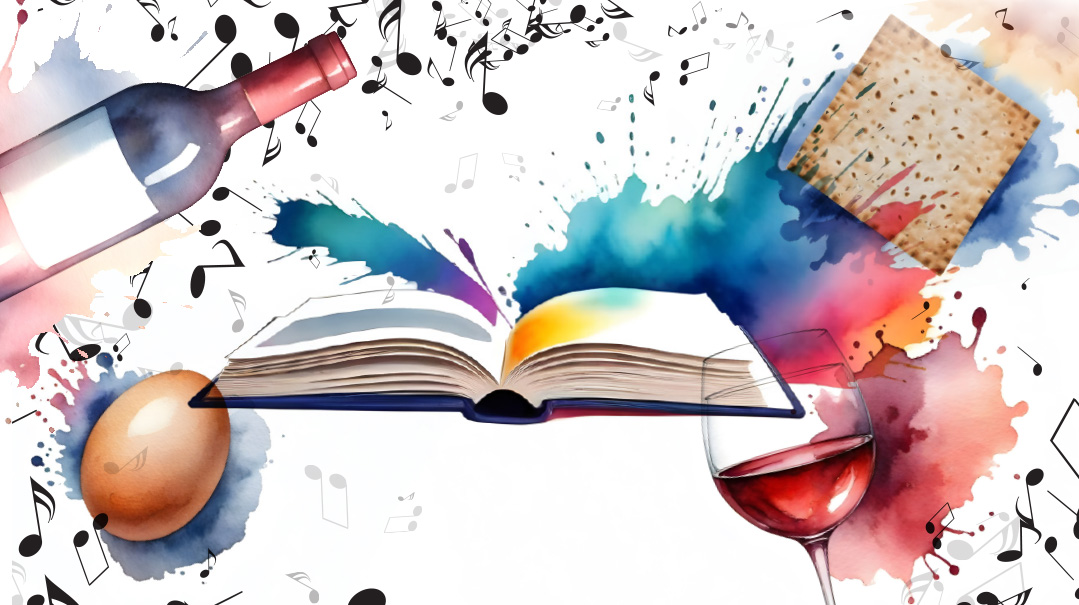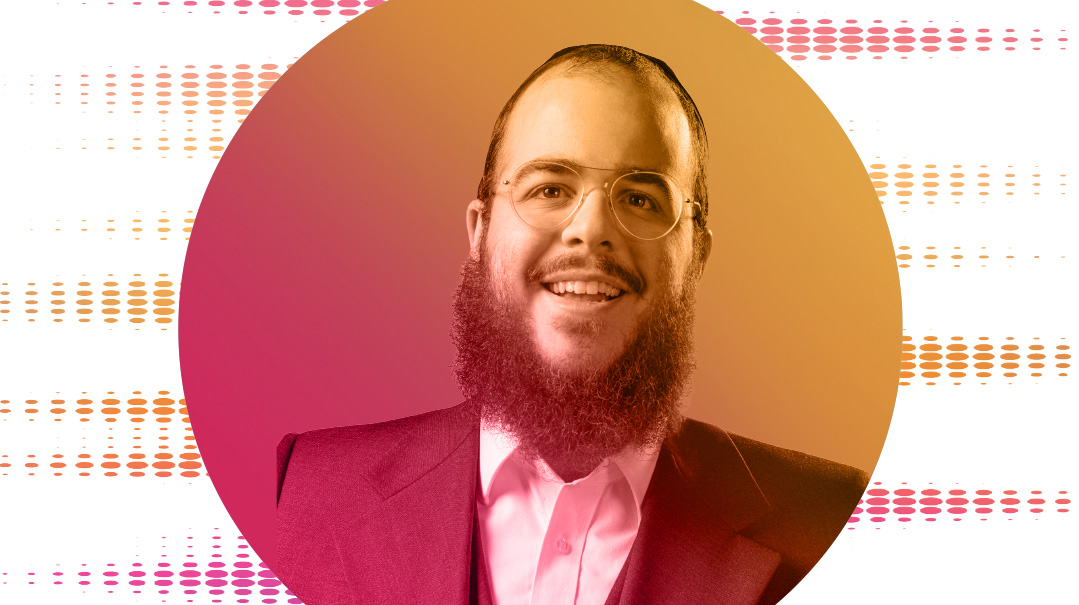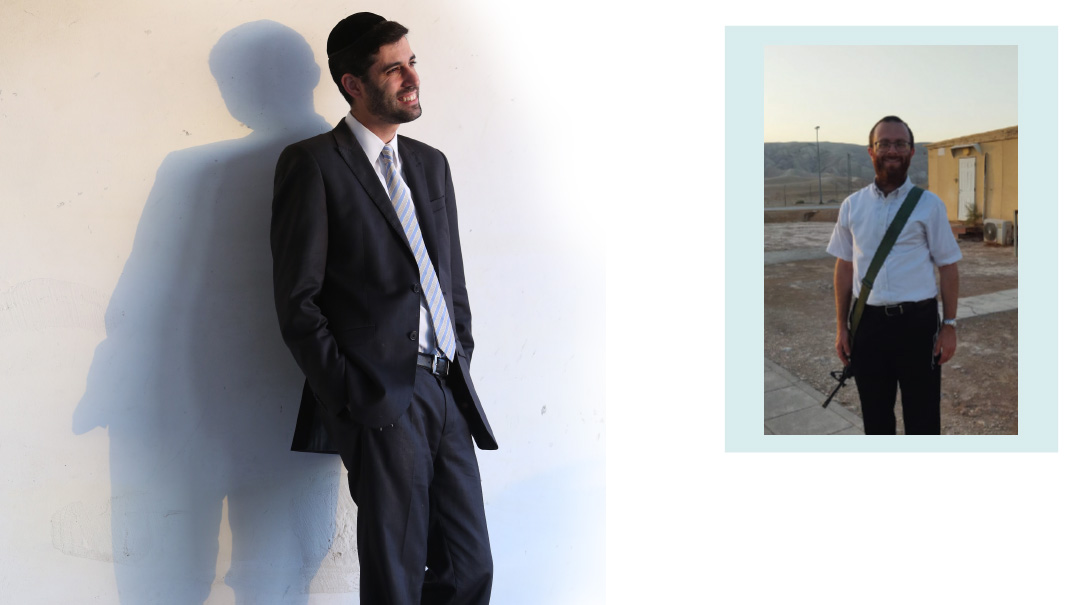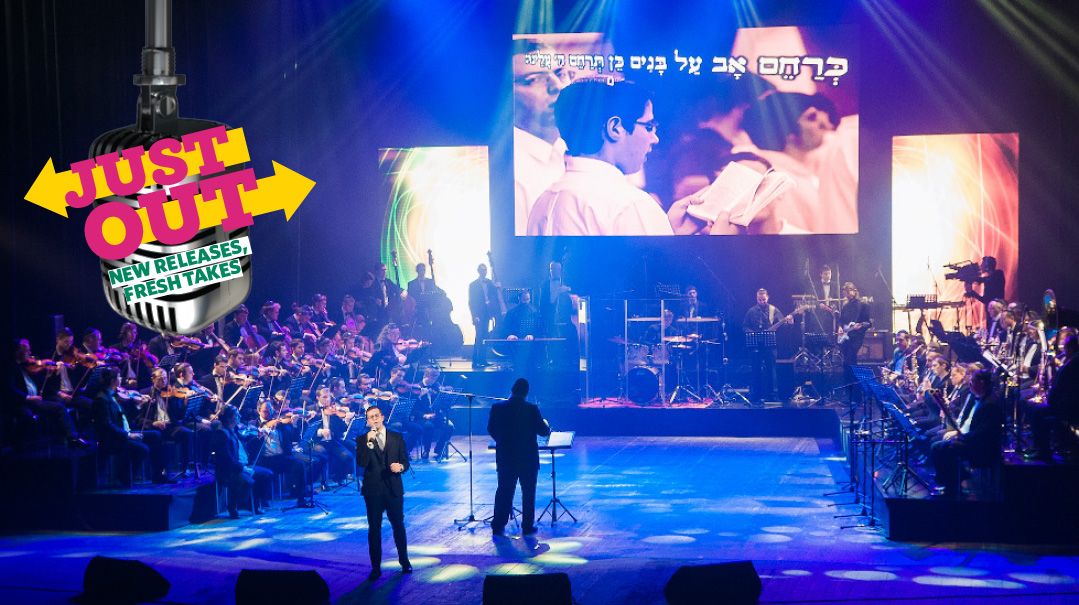A Beat Beyond Borders
| February 28, 2023Quite a few non-Jews in our various orbits also feel attached to the sounds that pump from our shops, yeshivos and simchah halls
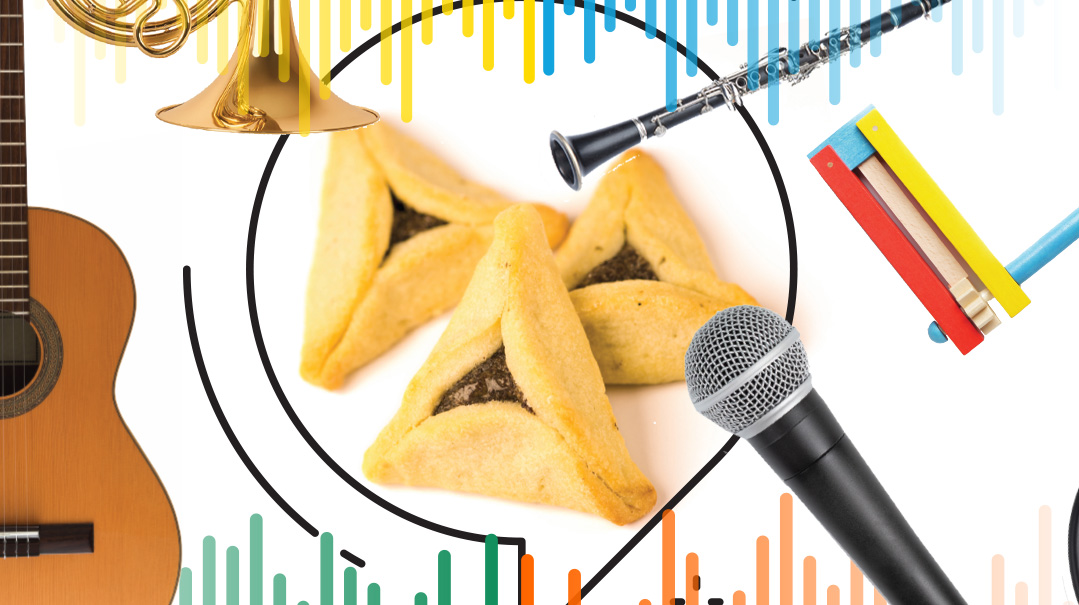
We Yidden tend to be protective of our Jewish music and take pride in its exclusivity, but there are quite a few non-Jews in our various orbits who also feel attached to the sounds that pump from our shops, yeshivos and simchah halls.
While the words might be a mystery, music that comes from the heart enters the heart
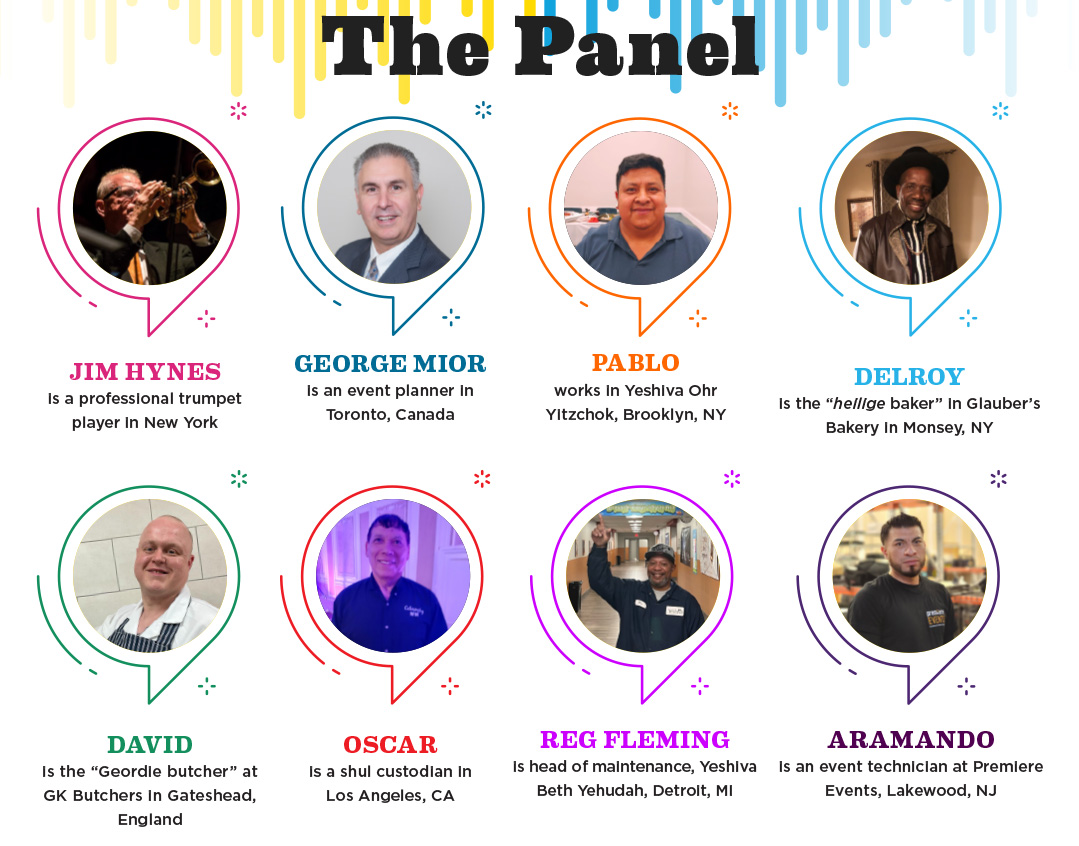
How long have you been hearing Jewish music?
JIM: I moved to New York City in 1986, and started working in Jewish music in 1988. I’d get hired by Ding, or Sheya Mendlowitz, and I’d spend my days in recording studios in Brooklyn. I kept a foot in both worlds because I spent my nights playing Broadway shows. I think I have done over 300 Jewish albums over my career and concerts including HASC.
GEORGE: Since I’ve been working in the community, which is 47 years. I started out as a waiter and slowly built up a clientele and began to arrange private events, weddings, and Shabbos weekend events in hotels. Although I’m very discreet, I’m well known in the community and have done many events, including for Israeli political delegations, and I was involved with the first Canadian Pesach program in Niagara Falls. I work predominantly in the Jewish community because they keep me busy, but not exclusively.
PABLO: Since I started working here, six years ago.
DAVID: Chameish years. It’s always playing here in the background of the kosher butcher store in Gateshead.
DELROY: I worked at Glauber’s for over thirty years, but at 65 I left New York and retired to Florida. I heard a lot of Yiddishe music during that time and I learned the songs. I became like brothers with the Glaubers.
OSCAR: Five and a half years, baruch Hashem, yishtabach Shemo.
REG: Twelve years.
ARAMANDO: Seven years.
What was the first Jewish song you learned?
JIM: In a sense, I never really learned any. I would come in and sight-read my part for a recording or concert without actually learning the melody, and oddly enough, I never did Jewish weddings.
PABLO: “Hashem Melech!” I remember that song pumping away the first Purim I was in yeshivah.
DAVID: “Let’s Go to Shul Today,” by Uncle Moishy. It’s still one of my favorites.
OSCAR: Zusha’s song “Dov Ber” — “You mamesh changed my life….”
ARAMANDO: 8th Day’s “Ya’alili.”
What would you consider your favorite song?
JIM: It’s hard for me to recall the titles in Yiddish and Hebrew, but I recall many songs that had trumpet solos where I had to dig really deep within to play with the same kind of passion that the singer sang with. In the music, I hear the years of angst that the Jewish people have gone through, and that is what touched me all the years. When you hear Avraham Fried or Mordechai in the studio, it’s obvious they are pouring every molecule of their soul into the song, so it requires the musicians to do the same.
GEORGE: I’m not so good with the names and the words. There’s a big singer and songwriter here in Toronto, Abie Rotenberg, whose songs are pretty good.
PABLO: My favorite is “Abba, Abba, Abba, Melech Ha’olam.” You can totally hear that it’s a song you’re singing for Hashem and it’s a very relatable prayer. I find that it’s a good song to use for praying.
DAVID: “The Shabbos Song” by Uncle Moishy. In my work, I totally relate to the words, “It’s Friday and we got a lot to do…”
DELROY: On Thursday nights the bakery was full, a really nice atmosphere, and some guys would teach me songs. There was “Shabbos Kodesh, Shabbos Kodesh… yeder einer vill zein cheilek in deim Shabbos Kodesh” [by Yomtov Ehrlich] and the Rosh Hashanah song in Yiddish about dipping the apple in honey and making a brachah. Then there’s the Purim song they taught me: “A gitten Peerim alleh / Vee ich gei fall ich / Hant iz Purim morgen iz oss / Gemich a duller un varf mich aross….” [Good Purim everyone, I fall down wherever I go, today is Purim and tomorrow it’s over, give me a dollar and throw me out].
OSCAR: “Hinei Lo Yanum Velo Yishan.” I heard Mr. Rechnitz sing it here at the shul a long time ago, and I made sure to learn it. It’s beautiful, probably my favorite song.
REG: It’s definitely “Thank You, Hashem.”
ARAMANDO: “Thank You Hashem.” The rhythm, and the message the song gives over, just makes me feel good.
What were your initial thoughts about Jewish music?
JIM: It was some of the most beautiful music, some of the most haunting melodies I’d ever heard. The melodic structure was deeply provocative, and the arrangements were not shlock, they were incredibly professional, well-orchestrated, and beautifully written out. When I say haunting, I mean songs like “Im Eshkocheich,” which I recorded with Yaakov Shwekey, and “Ani Maamin,” which I played in the studio with Mordechai Ben David singing. I did the first recording of “Mashiach” with MBD too. Although now, things have changed drastically in Jewish music. It’s very different from what it was.
GEORGE: Well, we’re talking 47 years ago. There were really nice tunes, the old, traditional stuff. Most of the events I worked at were on Shabbos, so they sang all the zemiros and “Oy Yoy Yoy Shabbos.” The music I’m hearing has changed a lot over the years. There weren’t trendy Jewish singers like Lipa back then. It was more conservative. Nowadays there’s even Jewish rap, though it’s not so common here.
REG: Look, I’m 63 years old and I can really appreciate this style. The Jewish songs are relaxing and mellow, but they also have a purpose. They carry a good sense of spirit. It’s not like the jazz stuff that’s out there.
Do you ever share this music with friends?
JIM: Yes, and there was some surprise. I’d play a track, like “Im Eshkocheich” or “Mashiach,” and say, “Check this out, look how well produced it is….” It’s hard for people to believe how developed the Jewish music scene is if they have no concept of what it is. I think that the Jewish producers go out of their way to get high quality musicians, and I’m proud of every single note I played.
GEORGE: Once in a while it slips out. But so far, I haven’t had any shocked reactions.
PABLO: Yes, sometimes I listen to Jewish music in my apartment, or I share clips on WhatsApp with my brother and my nephew.
DAVID: I’ve showed my wife and kids and a few of my friends. They definitely think I’m a bit of a meshugener, but I think it’s good to mix cultures. Most things I don’t mish, but with Jews I do.
OSCAR: I once had the privilege of singing at a Jewish camp concert here in L.A. That was great. I’m now learning Adon Olam and I hope im yirtzeh Hashem I’ll get to perform that one.
Are you ever curious to know what the words mean?
JIM: In general, although I could not understand the meaning of the words, the feeling came across regardless. I didn’t know what “Ani Maamin” meant, but I felt the momentousness of the song in the melody and music. If I got curious, I’d ask about specific words, and the producers were happy to fill me in. “Shema” means “listen” — I know that one.
GEORGE: In the old days here in Toronto, a lot of the older guys spoke Yiddish, so I learned some words here and there, like “mezuman” and “shkoyach.” Often the speeches were in Yiddish. Nowadays it’s not as common, the younger people don’t seem to speak as much Yiddish as the older ones.
DELROY: Ich farshtei alles! My Yiddish is great. I taught them English and they taught me Yiddish. One thing I got to know pretty well is which bruchah to make on which food. I can do a mezoinos on cake, a shehakol on soda, and even a hu’adumoh.
OSCAR: Yes, I like to know what the words are about, so I find out and learn. I’m not shy about asking.
REG: Yes, I need to know what I’m saying. I understand all the everyday expressions too, like baruch Hashem. I like to be right there with the kids and get involved, and in order to understand the way they speak you have to put an effort into picking up the language and the nuances. I love my job, love this place, and I love the yeshivah kids.
ARAMANDO: Yes, I’m a very curious person and I like to understand what I hear.
Is there a song that touches the emotions for you?
JIM: Yes. When Shwekey sang “A Yiddishe Mamme” on his Those Were the Days album, it really touched me.
GEORGE: For sure. I was at a wedding in Montreal when Eli Schwebel sang his own lyrics for a father-daughter dance. It made everybody cry. Both Eli and his father Rivie have beautiful voices. I like the mitzvah tantz in general, where the badchan tells the family story, singing a cappella with no band behind him. I like that, I sit down there with the family till two or three or even four or five in the morning.
DAVID: “Don’t walk in front of me I may not follow, don’t walk behind me I may not lead, Just walk beside me and be my friend….” That’s a nice one, quite a powerful song.
OSCAR: I like to sing “Nafshi, nafshi, chamdah…” It’s about my spirit, my spirit wanting Hashem, very spiritual. And here in shul at the Third Meal on Shabbos, they’ve been singing a nice “Askinu Seudasa.”
REG: A lot of songs touch my heart. The happy, joyful songs that are played at celebrations make me feel good. I love the bar mitzvahs that are celebrated here in the yeshivah. I set them up and join in the simchah.
Do you have a favorite wedding or Shabbos song?
GEORGE: There’s one they sing for Yerushalayim, almost in a kumzitz style, right at the end. It comes after “Someday we will all be together,” it’s partly in English, and it’s very nice. At Shabbos events, there is Shir Hamaalos at the end, and at the beginning there’s Shalom Aleichem and the song of homage to the women. Sometimes, if the crowd is just standing around schmoozing, I even begin Shalom Aleichem myself, to get them started. I also start Shir Hamaalos sometimes, if they look like they could just sit the whole day schmoozing at the table. At some point it’s time to bentsh and get going.
ARAMANDO: For a wedding, that would be the dance song “Bo’ee Beshalom.”
Do you have a favorite singer?
GEORGE: Well, there’s our famous Torontonian friend, Shlomo Simcha, who sings great. There’s a choir from Montreal who comes here a lot and even made a song about me once. There’s Yanky Orlansky and his Yedidim choir from New York, Shloime Dachs and Beri Weber, to name a few, and last night I heard Benny Friedman. They’re all good, and I like any nice song, no matter the genre or who the artist is. My personal playlist is a real mix.
DAVID: I’d say Lipa Schmeltzer. I also like that other up-and-coming guy, Nissim Black.
REG: In camp, that young guy, Moshe Tischler came and sang, and he gave me an autographed CD which I keep at home.
Can you tell what kind of music the different crowds go for?
JIM: Not really. I never really understood the differences between the sects. I still don’t. I’m sure there are different levels of being Jewish, but I don’t get them.
GEORGE: I think so. The Yiddish music is for more chassidic crowds. I actually don’t hear too much of it over here. People are playing the new Jewish music, which is also fine — they find the modern stuff meaningful and seem to like the tunes better.
DAVID: Yes, I know about the different crowds. I’m not chassidic. I’d say I’m more with the Modern Orthodox. But my main rebbe is Rebbe Nachman.
Special thanks to Rabbi Armo Kuessous, Rabbi Meir Kranczer, Ari Baumann, Osniel Rozen, Chaia Frishman and Nina Feiner for their assistance.
(Originally featured in Mishpacha, Issue 951)
Oops! We could not locate your form.
